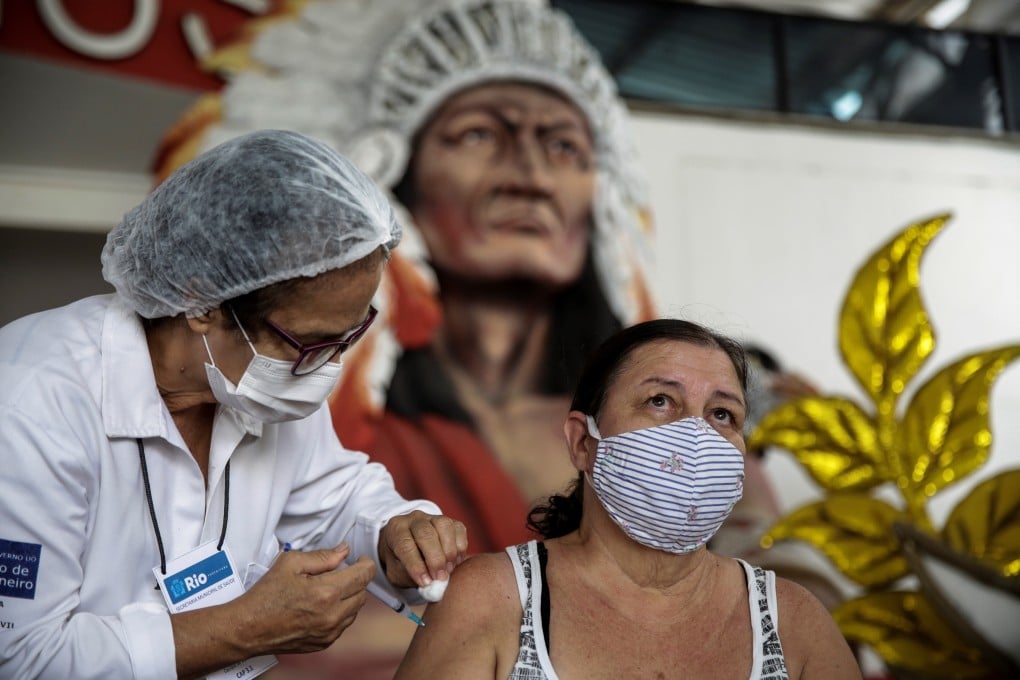Advertisement
Sinovac shot cuts risk of symptomatic Covid-19 in half, study says
- Primary efficacy rate found to be 50.7 per cent, according to results of final-stage trial in Brazil
- Separate study, also in Brazil, finds product to be almost 50 per cent effective at curbing the infection risk of the P1 variant
2-MIN READ2-MIN
63

Chinese drug maker Sinovac’s CoronaVac shot reduces the risk of symptomatic Covid-19 infections by half, in line with previous data, according to the long-awaited results of a phase three clinical trial in Brazil.
The trial by Brazil’s state-owned research institute Butantan involved 9,823 health care workers, who received two doses of the vaccine. The primary efficacy against symptomatic Covid-19 infection was 50.7 per cent, according to the study, which was published on Sunday but has not yet been peer reviewed.
“This pivotal trial for CoronaVac was able to demonstrate the safety and efficacy of a new Covid-19 vaccine,” the study said.
Advertisement
The efficacy rate of the Sinovac inactivated vaccine, which uses dead material from the virus to trigger an immune response, is lower than mRNA vaccines from Western drug makers such as BioNTech-Pfizer and Moderna, whose products have been shown to be over 90 per cent effective.
mRNA vaccines are created by genetic engineering and instruct human cells to make the spike protein of the coronavirus so that the immune system will recognise and protect against it.
While 50 per cent is the threshold for regulatory approval of vaccines, the lower efficacy of the Chinese products, including one made by Sinopharm, whose inactivated shot is 79 per cent effective, has raised questions over whether they will be able to curb the spread of Covid-19.
Advertisement
Advertisement
Select Voice
Select Speed
1.00x
